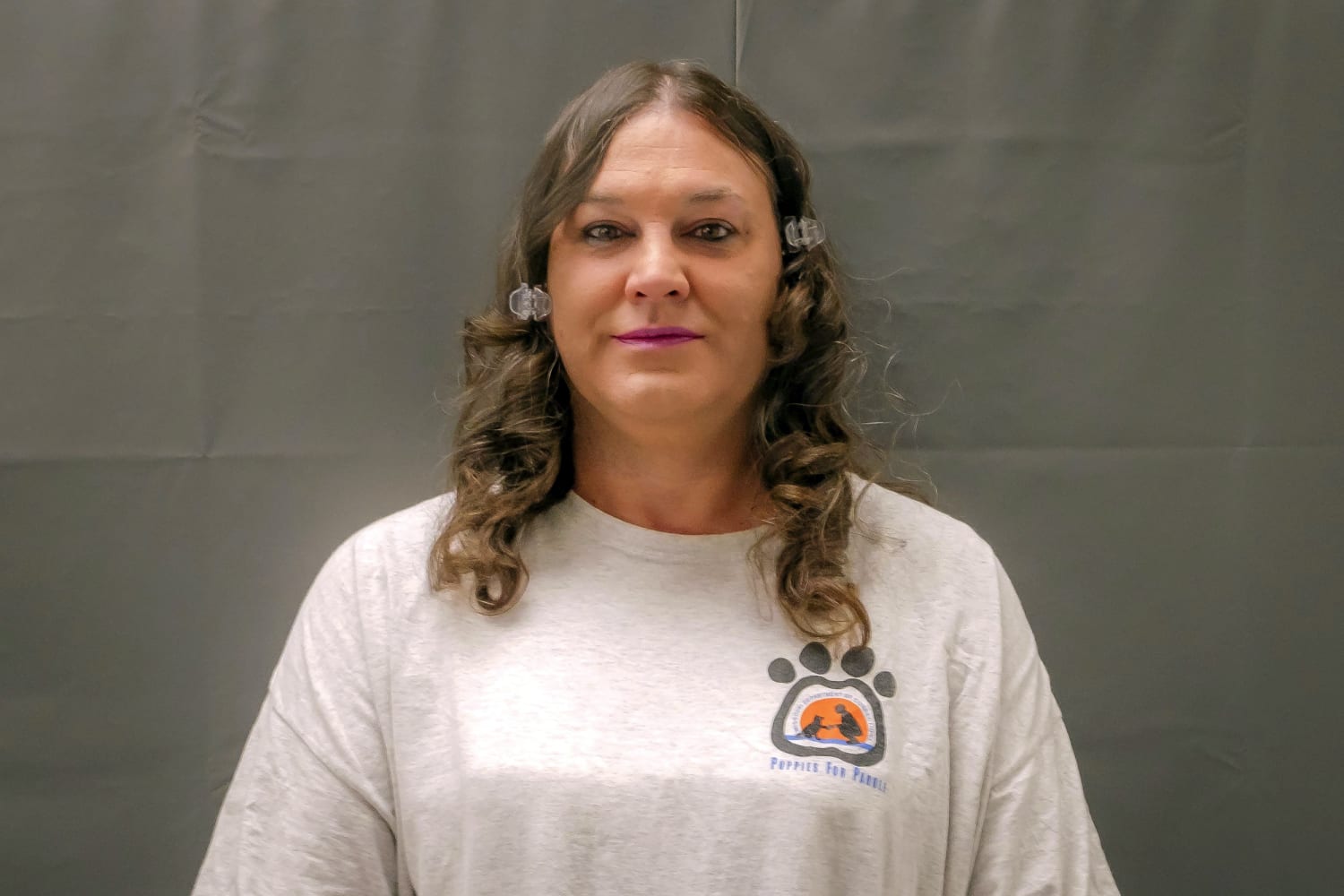

Amber McLaughlin, the first openly transgender woman to be executed in the U.S., died by lethal injection Tuesday night in Missouri.
McLaughlin was pronounced dead at 6:51 p.m. at the Eastern Reception, Diagnostic and Correctional Center in Bonne Terre, according to the Missouri Department of Corrections.
She was convicted of first-degree murder in 2006 in the killing of Beverly Guenther, and a judge sentenced her to death after the jury deadlocked on its sentencing decision. Missouri Gov. Mike Parson denied clemency Tuesday after advocates expressed concern over her sentencing.
“McLaughlin is a violent criminal,” Parson said in a statement Tuesday. “Ms. Guenther’s family and loved ones deserve peace. The State of Missouri will carry out McLaughlin’s sentence according to the Court’s order and deliver justice.”
McLaughlin spoke quietly with a spiritual adviser at her side as the fatal dose of pentobarbital was injected. McLaughlin breathed heavily a couple of times, then shut her eyes. She was pronounced dead a few minutes later.
“I am sorry for what I did,” McLaughlin said in a final, written, statement. “I am a loving and caring person.”
McLaughlin was in a relationship with Guenther before her transition, but Guenther obtained a restraining order after McLaughlin showed up multiple times at her workplace.
Officers found a broken knife handle near Guenther’s car and a trail of blood at her office building on the night of Nov. 20, 2003, after her neighbors reported that Guenther had not returned home. McLaughlin later led police to a location near the Mississippi River in St. Louis where Guenther’s body had been dumped.
The state was ordered to give McLaughlin a new sentencing in 2016, but a federal appeals court panel reinstated the death penalty in 2021.
McLaughlin’s appeal for clemency argued that the jury did not listen to issues about her mental health. Her clemency petition included details of traumatic childhood abuse, such as a foster parent who rubbed feces in her face when she was a toddler, and her adoptive father used a stun gun on her.
She suffered from depression, according to the clemency petition.
Advocates also expressed concern that McLaughlin would be put to death even though the jury was not unanimous. An online petition for clemency, supported by the organization Missourians for Alternatives to the Death Penalty, called the decision a “gross misuse of judicial power.”
“They weren’t convinced that Amber deserved the most severe punishment the justice system can offer,” the petition said. “But because of Missouri’s legal loophole, the trial judge was able to overrule the deadlock jury and impose a death sentence for Amber.”
McLaughlin began her transition in prison about three years ago, according to a fellow inmate and friend, Jessica Hicklin.
Hicklin won a lawsuit in 2018 against the Missouri Corrections Department, challenging a policy that prohibited hormone therapy for inmates who were not receiving it before they were incarcerated.
Hicklin said she rarely spoke to McLaughlin before McLaughlin’s transition, describing her fellow inmate as shy. The two spent more time together as Hicklin offered guidance about how to file paperwork for proper treatment and access to mental health counseling, as well as advice about safety within the prison.
“Definitely a vulnerable person,” Hicklin said. “Definitely afraid of being assaulted or victimized, which is more common for trans folks in Department of Corrections.”
Phil Helsel contributed.

 Latest Breaking News Online News Portal
Latest Breaking News Online News Portal




